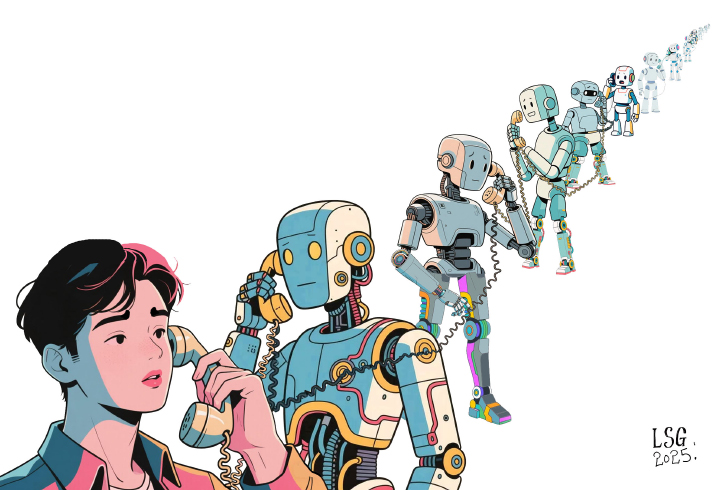| China |
| Is AI customer service giving businesses a leg-up or a cover-up? | |
|
|
 LI SHIGONG
AI customer service is being introduced to solve problems but, unfortunately, is increasingly becoming a problem itself. Instead of enhancing efficiency, AI often merely creates an obstacle course of irrelevant responses separating consumers from the queue for a human agent. The Shanghai Municipal Administration for Market Regulation recently released data on consumer complaints during this May Day holiday (May 1-5), revealing that over 50 percent of the reports involved issues related to after-sales service quality and contract fulfillment. A big portion of these complaints concerned problems with e-commerce platforms' customer service, including the lack of access to human agents. Similarly, national data from the State Administration for Market Regulation showed that intelligent after-sales service for e-commerce is drawing strong criticism, with the number of related complaints jumping 56.3 percent year on year. Zhou Yuan (Xinhua News Agency): It is essential to improve the efficiency of inquiry and complaint management in order to enhance the consumer experience. Eliminating problems requires businesses to truly commit to serving customers well and refrain from frustrating them with the so-called intelligent customer service. To make it easier for customers to access human customer service, the team of live agents available should at least suffice to deal with normal circumstances. Clear and easy-to-use methods for connecting with a human agent are essential, including "one-click" access for vulnerable populations like the elderly and people with disabilities. Businesses should avoid using AI customer service as a pretext to evade customer interaction. Instead, they should quickly respond to customer needs and resolve issues promptly. By better meeting their desire for a positive experience, more customers will feel willing to spend. Wang Yulu (Rednet.cn): The rationale for companies adopting AI customer service seems flawless: lower costs and higher efficiency in the handling of the most common inquiries. However, when technology becomes a buffer against customer engagement, and businesses prioritize cost reduction and so-called efficiency over consumer needs, it reveals a myopic approach to service—saving money but losing customer goodwill. Some businesses design AI customer service in a way that requires costumers to repeat again and again their requests before their phone calls are transferred to human agents, and sometimes AI agents deliberately delay the transfer. This goes against the goal of automation. Instead, AI customer service should be positioned as a first-level triage system, accurately identifying customer needs before transferring them to human agents. Human agents, in turn, should receive enhanced training to become the ultimate problem solvers. Li Zhiqi (Huanqiu.com): AI customer service is able to handle a large number of simple, recurring tasks. Some AI agents can even respond promptly to consumer queries and offer standardized answers and regular services. Nevertheless, the limitations of AI customer service become strikingly obvious when contrasted with human agents. While AI customer service can simulate human language communication, it struggles to discern changes in customer sentiment. Moreover, chatbots have a limited ability to handle complex issues. When faced with problems involving multiple factors or requiring comprehensive judgment, they often fail to provide accurate or complete answers. Although AI technology is constantly evolving, to enable AI customer service to deal with complex issues in the same way as human agents, major enhancements are needed in its natural language processing and cross-domain knowledge integration abilities. BR Copyedited by G.P. Wilson Comments to panxiaoqiao@cicgamericas.com |
|
||||||||||||||||||||||||||||||
|